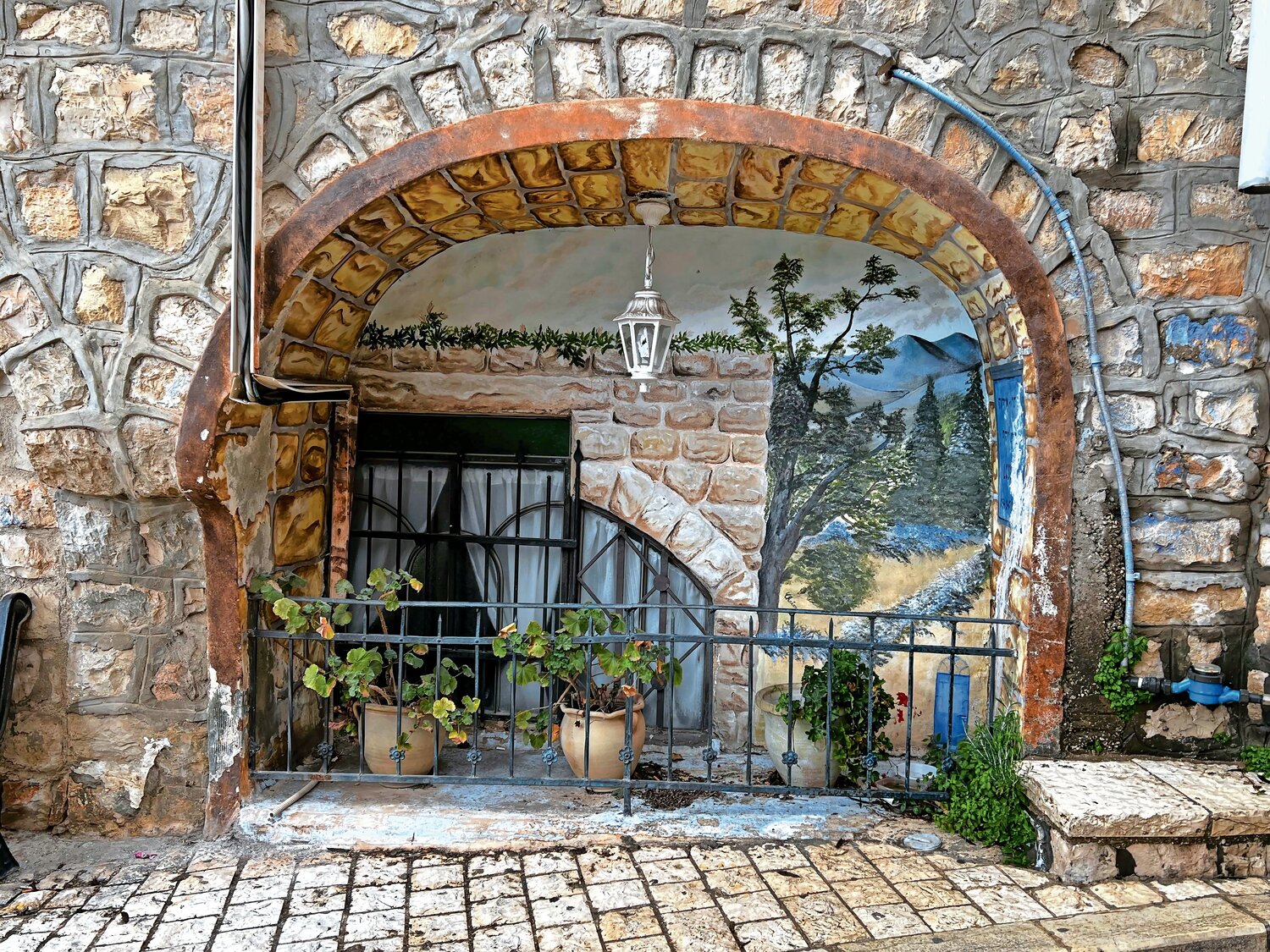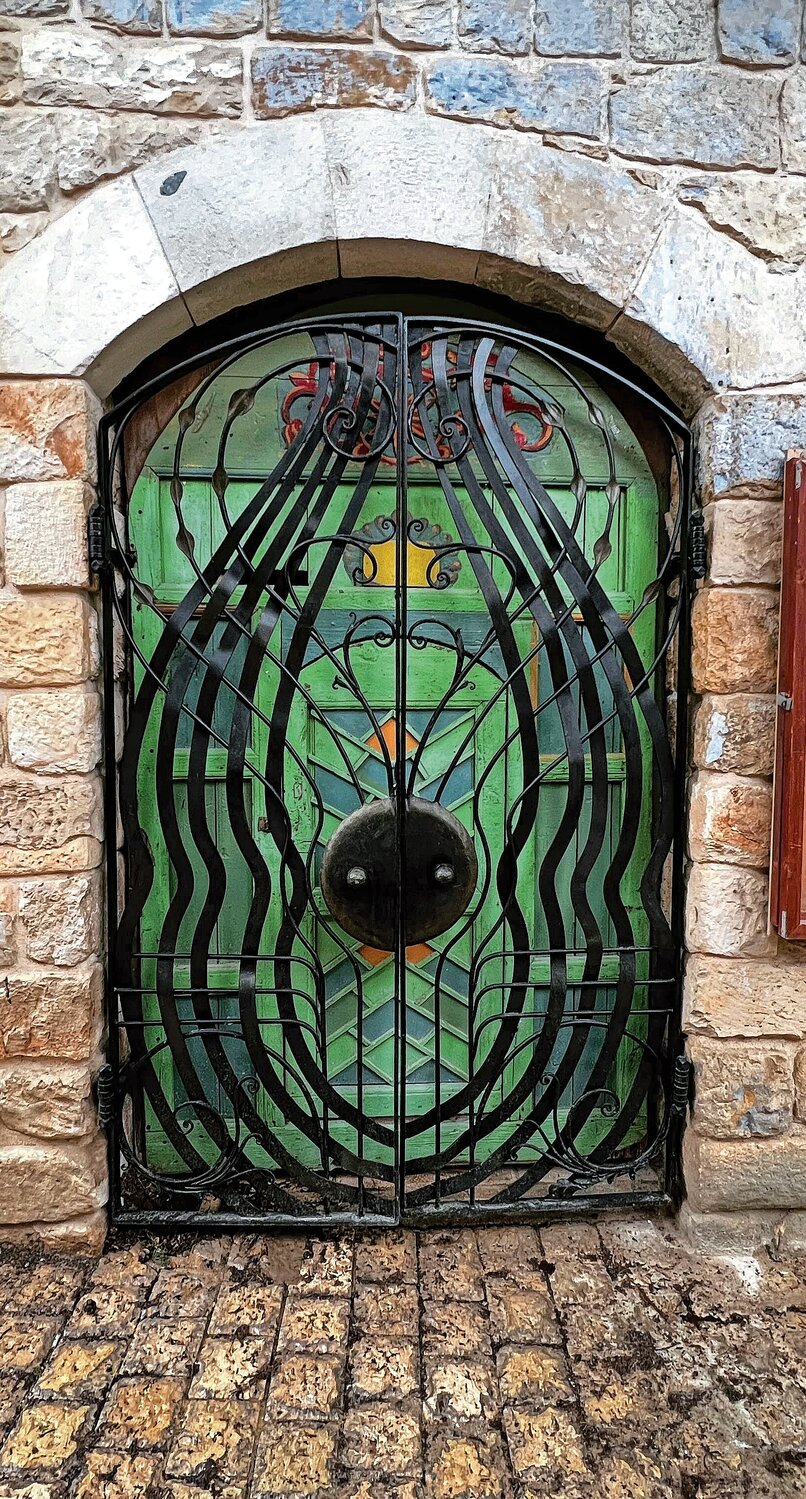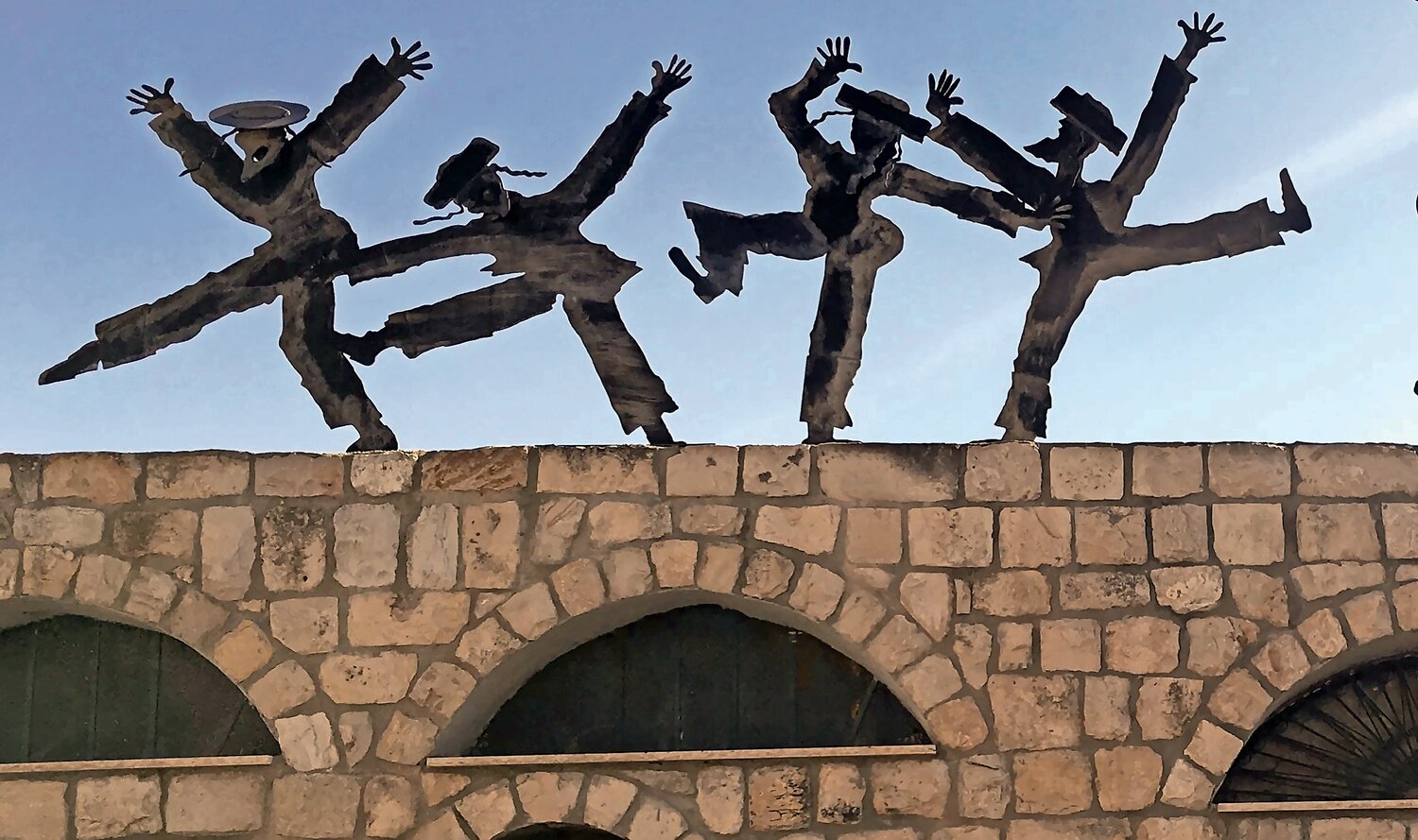Beauty beyond borders, beyond words, in Tzfat
There’s a charming café in the heart of Tzfat, an ancient, mystical city nestled in the hills of Galilee, that might as well be located in West Hollywood. Everything about Bella Bakery & Café (recently renamed Bella & Jacqlyn), from the quality of the coffee to the freshness of the croissants to the romantic French music, screams hedonism, which is fine if you’re in West Hollywood.
But Tzfat screams anything but hedonism. Every alley, every ancient synagogue, every bookstore, every tombstone is imbued with reverence and holiness. Walking through Tzfat is like bathing in a virtual mikvah of holy air.
And yet, I’m drawn every morning to that sanctuary of pleasure, where the Americano is so good I feel I need to apologize to G-d.
The other morning, I was amused by this scene of an elderly, “ultra-Orthodox” couple enjoying a coffee while a sensual French song came on. Do they have any idea what this song is about? I wondered. If they only knew.
H
ere was a clash of two opposite worlds — a song one might expect to hear on a nude beach on the French Riviera, playing for religious Jews whose lives revolve around modesty and restraint.
But here’s the thing — it didn’t feel like a clash at all.
You see, the religious couple probably didn’t know French, so they didn’t get the words. All they heard was great music from a great song that fit the mood of a morning coffee.
No words! Just the music.
In the Hasidic tradition, they have what are called nigunim — soulful, melodic chants that have no words. They’re powerful precisely because they are wordless; the chanting itself is the point. There is no “message” to distract you from the vibe of the chant. You surrender to the raw beauty of a melody.
It’s ironic that as a man of words, I’m reflecting today on the power of no words. But there’s a mysterious quality to the idea of absence, of holding back. Designers call it negative space; Kabbalists call it white fire.
At a time when we are overdosing on words, when words are routinely weaponized and distorted and vulgarized, an absence of words can feel like a welcome tonic, a refreshing cleanse.
This verbal restraint speaks to a kind of modesty, to allowing other things to shine besides words.
That religious couple in the cafe didn’t understand the sensual lyrics of that French song. They didn’t need to. They already had beauty without words, beauty without borders.
They had music.
David Suissa is editor-in-chief and publisher of Tribe Media Corp and Jewish Journal, where this column was published. Tzefat photos by Ed Weintrob, The Jewish Star.












